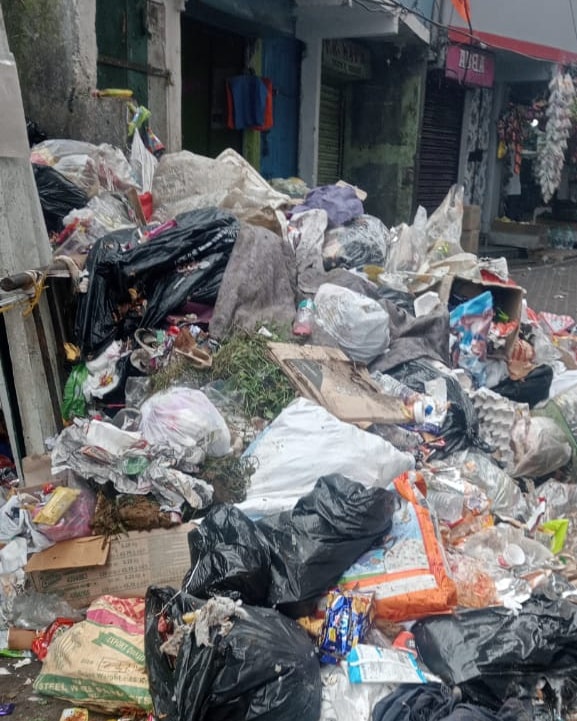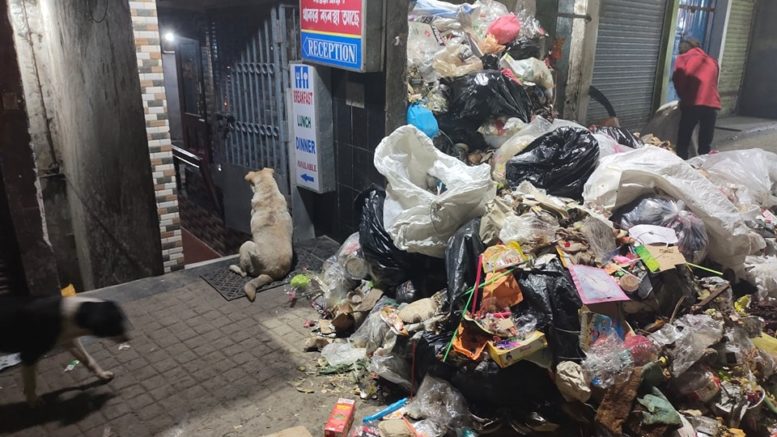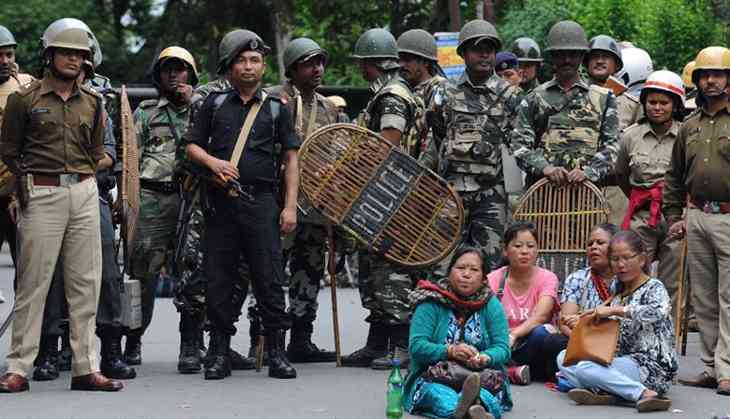World Environment Day is celebrated every year on 5 June to raise global awareness to take positive environmental action to protect nature and the planet Earth.
And whenever we talk about World Environment Day or Environment, few very common terminologies like, Deforestation, Pollution, Global warming and Climate Change etc strike our mind. Here later two are the consequences of first two, which slowly but visibly are making negative impacts on the biological as well as physical environment that we are a part of. The whole world is worried about mother earth and World Environment Day is a response to that worry.
Our region being mostly covered under Tea Gardens, Chincona Garden and Government Forest Area hasn’t much seen Rampant Deforestration. Though mono-culture is environmentally hazardous too, however it is perhaps of these plantations, we have enough green cover still intact. In addition thanks to the tree plantation work done by Govt, NGOs, and nature lovers, our green cover has continued to remain positive.
However when it comes about Pollution, we do have greater issues.
Air Pollution: We haven’t experienced much of Air Pollution (comparatively to many other cities), thanks to physiographic and green surroundings.
But when it comes about Water and Land, pollution level is indeed worrisome. In fact, many of our rivers and water bodies are dying. Rampant Hydro Power project dams (Read as a case of over exploitation of resources) and so called “Development” around our water bodies is murderous. And sadly we have been just a mute spectator to the rampant exploitation of our environmental resources.
To add to the murderous development activities of our rivers, we are also contributing towards the death of hills with uncontrolled solid waste generation and unscientific disposal.
Land pollution or Solid waste- our region is slowly and steadily competing with the rest. Human life is impossible without the uses of various natural and man-made materials. May it be in domestic sector, agriculture, commercial or industrial sectors, we produce huge amount of solid waste regularly. And with the lack of proper management of these wastes, we have been polluting our farming land, water resources, creating disasters (drainage blockage, landslides), disease hazards etc.
GTA region doesn’t have much of manufacturing industries; hence the major source of Pollution can be taken as domestic and commercial centers (markets). Good population score with Good flow of tourist, Towns and Bazar areas in GTA regions are increasingly suffering from garbage pollution. Solid Waste management – Collection, deposition and disposal of solid waste in proper way is demand as well as need of the time. And this need isn’t confined within the urban centers, but in rural areas too.

Though there were many cleanliness drives and activities going on, but in recent, campaign of Swachh Bharat by PM Narendra Modi has brought greater surge in such activities. Beside Policy criteria of Cleanliness for the grants to Developing Smart cities by Government has also made authorities and denizens to be little aware and wary about. However our towns are still very far in cleanliness ranking. And that can be felt in ground too.
What can be done?
Whenever we talk about Environment and pollution and as mitigating measures we draw 3Rs – Reuse, Recycling and Reduction of use. But what I think is before we get to those 3R , we need our self to be 2R – Rational and Responsible.
First of all we must be rational and responsible enough to be Aware, Practice and Preach about solid waste management. Simple practice of not littering own surrounding (wherever we are) will do a lot. (I am not writing ‘Use dustbin’, as it may not be available everywhere and that doesn’t mean we throw our unwanted stuff anywhere)
Solid waste can be broadly classified into 2 categories Biodegradable (Kuhiney) and Non-Biodegradable (Nakuhiney). Biodegradable waste gets broken down in short span of time (few weeks to months) and are not much hazardous. Whereas Non-biodegradable waste doesn’t break down easily and persist in the environment causing many hazards.
As the disposal process and time of these two different types of solid wastes is totally different, it is advisable to deal with these two types of waste separately.
If we will be able to practice the collection of wastage (at domestic or commercial sectors) separately as Biodegradable and Non-biodegradable half of the work towards proper solid management will be done. Though this may sound difficult to practice, but it is rather very easy and can be easily implemented.
What we need is Rational and responsible mindset and culture. It is all about developing a culture. It will take time but it can be done. In fact many of the Tea Garden Management have been practicing this separate collection of garbage.
Biodegradable wastes can be converted into fertilizer through composting process. And can help us in developing organic manure. Financial benefits too, by marketing the organic manure.
However, the practice must be done far from human settlement and drinking water sources, as the breaking down of biodegradable substances create foul odour and can pollute our drinking water.
Non-Biodegradable solid waste can be well managed by 3R formula
Reduction of use: As we don’t have any better facilities available for the disposal of non-biodegradable waste, it becomes our responsibility to limit or reduce the production of such waste. Or simply reduce the use. For example: Plastic bags, bottles are Non-degradable, so either don’t use or reduce the use.
Reuse: Many solid wastes can be reused, either for the same or other purpose. Utilizing discarded bottles, jars, cans as flowerpots to creating mats from plastic bag piles Various innovative reuse of discarded non-biodegradable things are in practice. This reciprocally helps in reducing the production of wastes too.
Recycling: some non-degradable waste can be – Collected –Reprocessed – Recreated. Especially with metallic wastes. But the process is costlier than others.
Besides that, Landfill process is also widely practiced by but it’s just shifting the problem from one place to another. Incineration process is too expensive for our region to be done in bigger scale.
Everything mentioned here is nothing new, and very commonly heard thing. But yeah.. its just ‘heard thing’ and not practiced thing. And these aren’t just a ‘Practice of a day’ thing but gradually ‘Developing as a culture thing’.
And lastly, there’s great need of Population de-concentration from our town areas. Time is to brainstorm for this from every stakeholder in our society. Suggestive and constructive comments are awaited.






Be the first to comment on "WORLD ENVIRONMENT DAY: What #Darjeeling Needs to Learn"